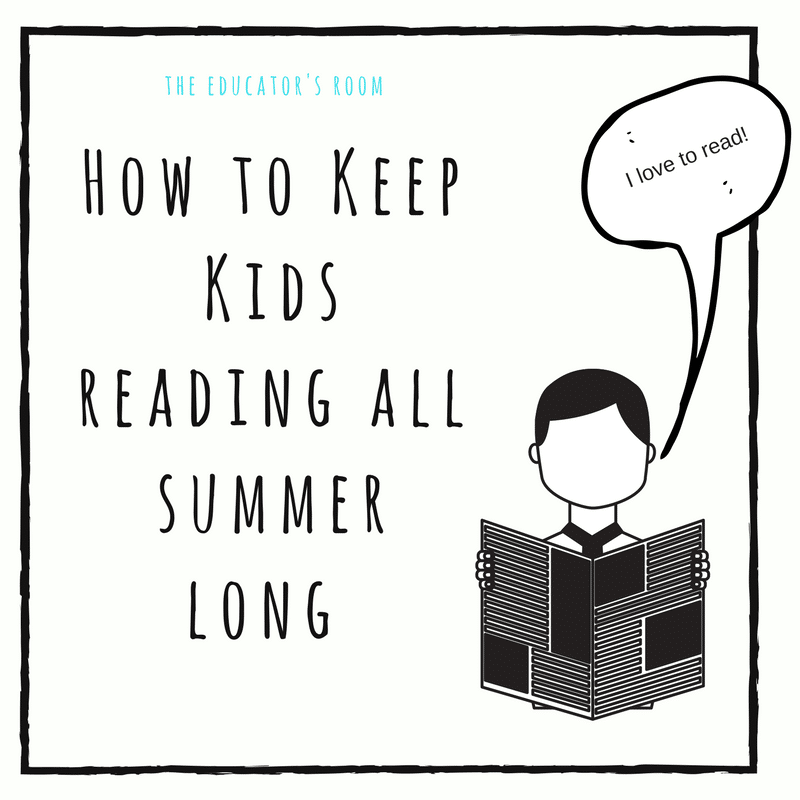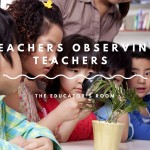Each fall teachers ring their hands and furrow their brows at the lack of reading their students did over the summer. We bemoan the fact that the summer reading lists we hand out are shoved in a backpack in June and not looked at again until, well, for many kids, never.
Many teachers lecture high school students for not reading the required summer books either. Copies of The Scarlet Letter that were handed out after exams in the spring, barely show either wear or tear. It seems no one sat at the pool pondering Hester Prynes’ sin or the symbolism in the prison door that Hawthorne delicately details.
It also seems that there is two steps forward, one step back feeling to reading success with students. They make strides during the school year, only to lose some of it over the summer. As teachers and parents, we need to be more mindful of how we combat this loss each summer. We need to do more than just tell kids to read.
Give them opportunities.
Many kids need more than just a required 20 minutes a day to read. Avid readers always find opportunities, but the rest–especially younger readers–need help. Set aside time that becomes routine. Maybe it’s before bed or during younger siblings nap time. If you spend a lot of your summer on vacation, make reading a natural part of your trips with digital or audio books in the car/on the plane.
As educators, we can give students summer reading opportunities also. Rather than hand out a list of books, invite older students to online book chats throughout the summer. Or, if possible, live meet-ups to discuss what they’re reading. Pro-tip: snacks attract teenagers.
Read in front of them.
It’s always amazing to me when parents who do not read at all are confused as to why their students do not read. The same holds true for teachers who do not read. If you expect your students/children to read for pleasure, you should be modeling it.
It’s a powerful thing for kids to see their parents choosing to read rather than watching TV or staring at a computer or phone screen. If your small kids are playing outside, rather than sit in the house and watch Ellen, take a book outside too.
Teachers, share your summer reading list with your students! Invite them to follow you on GoodReads or create a blog to write about what you just read.
Read with them.
Not only should kids see adults reading, they should read together. From ages birth through high school, kids love to read with the adults in their lives whether it means being read to or reading side by side or reading the same book.
Growing up, my mom not only read to us each night, but she read her mysteries next to me on the couch as I read my Sweet Valley Twins books. Reading with kids provides that opportunity kids need as well as the modeling that is so important to impressionable kids.
Even my ninth grade students still enjoy being read to. One of the six elements of effective reading instruction that Richard Allington promotes is that every child gets read to by an a fluent adult every day. This means I read to my students and my children (ages 6, 3, and 11 weeks) every day. It helps students hear what fluent reading sounds like, but it also helps with comprehension, thus expanding background knowledge for future reading.
It’s also fun!
Talk about books, not reading.
One of the biggest mistakes I see parents making is telling kids to read and asking them if they have read rather than talking to them about specific books. One of the biggest joys of being a lifelong reader is talking about what you read with others and finding new books to read.
Parents can do this by reading with their kids and reading to their kids.
Teachers can do this by setting up book clubs or online chats about reading. If you talk to students about what they read rather than collect a reading log at the end of the summer, there is a better chance students will actually read rather than just fill in a form to get their first A of the school year. Reading logs and reports no one really reads are not effective motivators. Creating #shelfies, reading ladders, and discussion groups are.
So get to the library, grab some books for you and your kids, and get reading this summer! And let us know what you’re reading!






Leave a comment